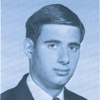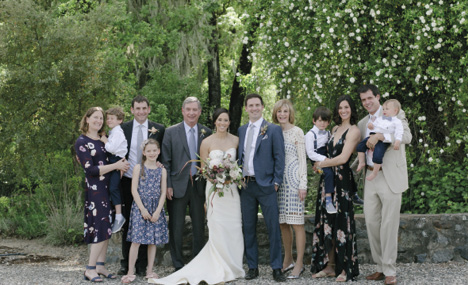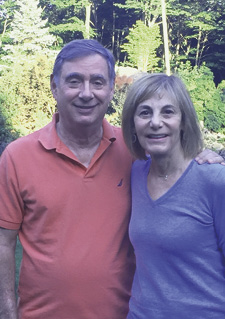Lee Goldman – 50th Reunion Essay
Lee Goldman
 448 Riverside Dr.
448 Riverside Dr.
Apt 91
New York, NY 10027
doctorleegoldman@yahoo.com
office 212-305-2752 preferred; cell 646-648-9955
Spouse(s): Jill S. Goldman (1971)
Child(ren): Jeff (1976); Daniel (1979); Robyn (1979)
Grandchild(ren): Mira (2008); Samuel (2012); Dashel (2013); Alden (2017)
Education: Yale BA 1969, MD 1973, MPH 1973
Career: Currently: Columbia University – Hatch Professor; Dean of Health Sciences and Medicine; Chief Executive, Columbia University Medical Center. Previously: University of California, San Francisco (UCSF) – Krevans Professor and Chair of Medicine; Harvard University – Professor of Medicine and of Epidemiology. Clinical practice: Cardiology. Research: Predicting heart disease and its complications.
Avocations: golf, landscaping, American history (especially presidential biographies)
Honors: Member, National Academy of Medicine. Fellow, American Association for the Advancement of Science. Past President, Association of American Physicians, Society of General Internal Medicine, Association of Professors of Medicine. Honorary MA (Harvard) and D.Sc. (University of Glasgow). Lee Goldman MD endowed chair and Goldman Medical Service at UCSF.
College: Ezra Stiles
As someone who is (or has become) more pragmatic than reflective, my essay should not be read by those looking for great insights or “wow” revelations. My story is more consistent with two of my favorite sayings: “If we are what we eat, we become what we do,” and “life is what happens while you’re busy making plans.”
For a 17-year-old from a public high school that sent only about 20 percent of its graduates on to higher education, including hairdresser’s school, coming to Yale was truly transformative—intellectually, of course, but even more so from the perspective of personal growth. Majoring in history (senior thesis: why wasn’t there a compromise of 1860?), trudging up Science Hill for premed requirements, working at the student laundry to pay my way through college, and going to as many Yale sporting events as possible (aided by the proximity of Ezra Stiles to Payne Whitney) are among my principal memories.
Medical school (also at Yale) started out as a huge challenge for my minimal scientific background, but I found my niche when a joint public health degree pointed me toward the type of research I had previously shunned when choosing history over political science. And it was then that I met Jill, still my wife and best friend after 47 years and now a distinguished genetic counselor. Three children, each different and each very independent, have been life’s biggest blessing, at least until our grandchildren.
On the professional side, life turned out far differently than my original plan to be a practitioner in a small group that I might help run. Initially on the lunatic fringe of academic medicine, the “outcomes” research I do became part of the mainstream. Although my high school dream of becoming general manager of a baseball team was obviously unattainable, being chair of a department of medicine and dean of a medical school gave me an opportunity to recruit and help build a different sort of team. But of all the things I did in these administrative positions, the most rewarding has been to shepherd a gift that will allow Columbia’s recently renamed Vagelos College of Physicians and Surgeons to eliminate need-based loans and provide financial aid exclusively with scholarships, rather than the usual combination of scholarships plus loans, so our students can pursue careers of their choice unencumbered by medical school debt. We hope other medical schools will soon be able to follow this model.
Now, approaching 23 years in academic medical administration, I am getting ready to step back into the life of a professor, focusing on the forthcoming edition of my textbook (Goldman-Cecil Medicine), perhaps another foray into the lay press (following my book entitled Too Much of a Good Thing: How Four Key Survival Traits Are Now Killing Us), teaching, and hopefully at least a brief burst of research creativity. The last act isn’t always the best, but it’s always worth putting in the effort to try to make it so.

Lee, Jill, children, and grandchildren at Dan’s wedding, Hopland CA May, 2018

Jill and Lee, enjoying the backyard July, 2018
If the above is blank, no 50th reunion essay was submitted.
